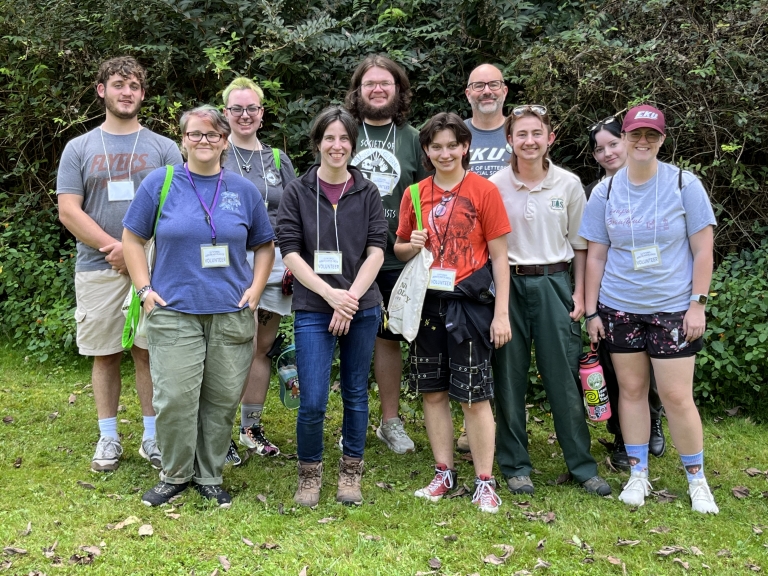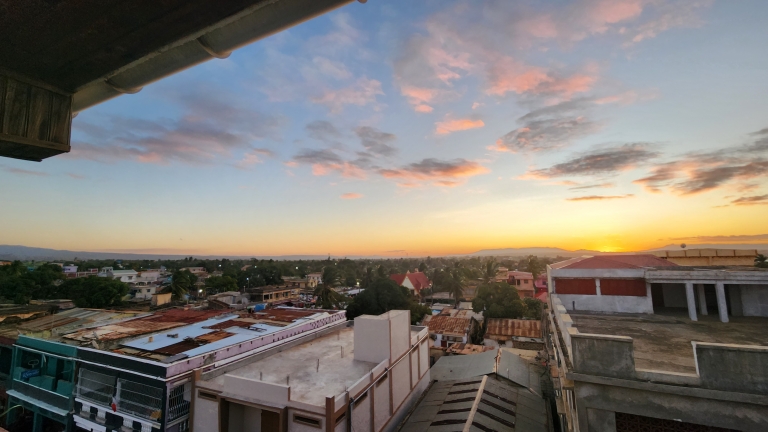Anthropology Major & Courses

The Path to Majoring in Anthropology
Major Requirements: 33 hours (120 Total hours)
REQUIRED COURSES:
ANT 120 Introduction to Cultural Anthropology
ANT 200 Archaeology and Human Culture
ANT 201 Introduction to Biological Anthropology
ANT 330 Native American Cultures
ANT 394 Anthropology and Wicked Problems
ANT 395 History and Theory of Anthropology
AND at least one course from each of the following three categories (15 hours total):
ARCHAEOLOGY
ANT 321 Historical Archaeology
ANT 341 North American Archaeology
ANT 357 Archaeology and the Law
ANT 360 Aztecs, Inkas, Mayas
ANT 439 Practicum in Archaeology
ANT 470 Field Methods in Archaeology (Archaeology Field School)
ANT 471 Archaeological Materials Analysis
ANT 355 Selected Topics in Archaeology
CULTURAL ANTHROPOLOGY
ANT 311 Anthropology of Religion
ANT 344 Applied Anthropology
ANT 345 Language and Culture
ANT 346 Anthropology of Food
ANT 377 Medical Anthropology
ANT 375 Selected Topics in Cultural Anthropology
BIOLOGICAL ANTHROPOLOGY
ANT 306 Human Evolution
ANT 365 Selected Topics in Biological Anthropology
ANT 370 Primate Conservation
ANT 371 Primate Ecology and Sociality
ANT 380 Forensic Anthropology
ANT 385 Human Osteology
ANT 460 BioAnthropology Field Methods (Primate Field School)
COURSE DESCRIPTIONS
Introduction to Cultural Anthropology (satisfies Gen Ed Element 5b)
Explanation of culture and related concepts. Development of generalizations concerning social, economic, political, and ritual organization, based chiefly on comparative study of various societies. Includes a brief survey of linguistics.
Archaeology and Human Culture (satisfies Gen Ed Element 5a)
Study of the evolution of human societies through time and over space. The course focuses on hunter-gatherer, horticultural, agrarian and industrial societies, and their change through time.
Introduction to Biological Anthropology (satisfies Gen Ed Element 4)
General survey of the human biological species and its evolution, emphasizing the study of genetics, osteology, primate behavior and biology, fossil populations, and contemporary human biological variation.
Human Evolution
A detailed analysis of primate and human physical development emphasizing the fossil evidence of humankind’s evolution.
Anthropology of Religion
Anthropological exploration of religious belief systems across cultures and time. Analyzes the intersection of religion with subsistence strategies, economic systems, political systems, and gender structures. Topics include magic, witchcraft, sorcery, monotheism, polytheism, possession, and health.
Historical Archaeology
This course provides an introduction to the material culture of North America’s recent past. Lecture is combined with hands-on exercises using historic artifacts and documentary sources.
Native American Cultures (satisfies Gen Ed Element 6)
Explores the cultural diversity of American Indians by examining their historical and contemporary lives. Focus on cultural similarities and differences of American Indian groups living in ecologically diverse areas.
North American Archaeology
A basic but comprehensive introduction to Native American archaeology from the earliest evidence through European Contact.
Applied Anthropology
Comprehensive survey of applied anthropology theories, methods, and approaches. Based on extensive cross-cultural case materials, examines the historical, current, and potential applications of anthropological perspectives to social problems.
Language and Culture
Sociocultural perspective on the study of language. Cross-cultural topics include the role of language in creating and maintaining cultural norms in gender, Indigeneity, ethnicity, class and power, and race and racism.
Anthropology of Food
Examines food’s role and impact on humankind through archaeological, biological, cultural, and linguistic anthropological perspectives. Includes issues related to environmental sustainability, sociality, and food’s intersection with gender, race, ethnicity, class, and Indigeneity.
Archaeology and the Law
Survey of Federal legislation for the management of cultural resources, and the repatriation of human remains and other materials to descendant Native American tribes. Global heritage issues also addressed.
Aztecs, Inkas, Mayas
The study of archaeological past, the colonial experience, and the contemporary reality of the Indians of Mesoamerica, focusing primarily on the ancient Maya.
Primate Conservation
The local human and biological impact of conservation programs affecting primate communities throughout the world. Topics include forest fragmentation, historical perspectives on conservation, agroforestry, ecotourism, ethnography, and disease.
Primate Ecology and Sociality
Ecological relationships within primate communities. Students examine primate social structure, habitat use, diet, locomotion, seasonality, plant-primate interactions, and predator-prey relationships.
Medical Anthropology
Exploration of health, healthcare, and healing cross-culturally. Through medical anthropology theory and methods, apply critical perspectives to the health status of populations, the distribution of health in societies, and health outcomes.
Forensic Anthropology
Forensic osteology and dentistry; including demographic methods, pathology, and practical methods of collecting human physical evidence; and the role of the expert witness.
Human Osteology
Analysis of individual skeletal remains, focusing on functional anatomy and bone physiology, disease and injury, and nutrition. Includes introductions to bioarchaeology, forensic anthropology, and biocultural reconstruction.
Anthropology and Wicked Problems
A capstone investigation of past and present practices and theories used to interpret data from each of anthropology’s four subdisciplines. Professionalism in anthropology also integrated.
Practicum in Archaeology
This course pairs senior anthropology majors with professional archaeologists for on-the-job training. Practicum options may include federal and state governments, private archaeological consultants, and anthropology museums.
Field Methods in Archaeology (Archaeological Field School)
A hands-on study of archaeological field methods including excavation techniques as well as some laboratory analysis of archaeological remains.
BioAnthropology Field Methods (Primate Field School)
Learn biological anthropology field methods while conducting a research project. Collect and analyze biological anthropological data. May be retaken to a maximum of six hours, provided the subject matter differs each time.

